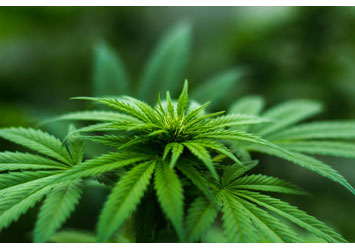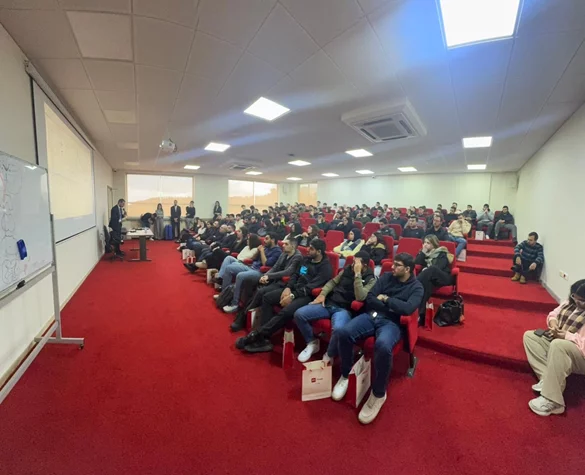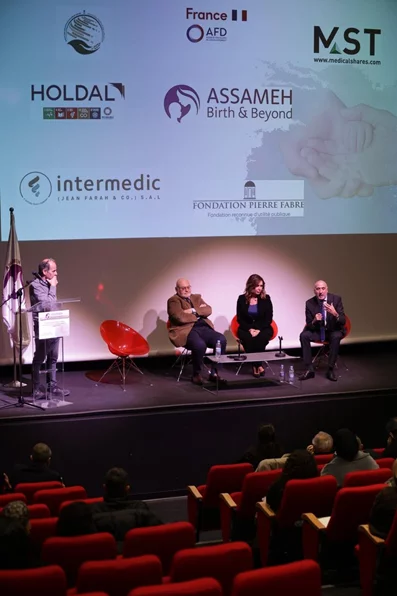Under the title "Be the Game Changer, our Society is in Danger... Say NO to legalization of cannabis cultivation in Lebanon" designed to face legalization of cannabis cultivation for medical purposes when bills have been scrambling to legalizing it, and in order to shed the light on its dangers and cautions and have a comprehensive file about it, the Net below dealing with rehabilitation of addicts, expresses their position here after.
Oum el Nour - CDLL Cénacle De La Lumière - JCD Jeunesse Contre la Drogue - Nusroto Al-Anashid associations, who accumulated decades of knowledge and hands-on experience in preventing and dealing with addictions and substance abuse problems, are directly concerned in the legalization of cannabis cultivation for medical purposes for its negative influences on the addiction issue.
According to successive working groups, and basing their position on multiple scientific studies to provide sound arguments to influential Lebanese, decision makers, legislators and the public opinion, they agreed as follows:
1- Ambiguity in studies in Lebanon
The authors of the idea of legalization of cannabis cultivation for medical purposes indicate that the goal is to help farmers increase their income and achieve savings in the Lebanese budget up to one billion dollars. However, it turned out to the Network that studies in this field are still unaccountable or unavailable or uncertain and do not have guaranteed results. No scientific studies exist on the crucial need for Lebanon for this cultivation for medical purposes. Furthermore, international studies proved that the demand on cannabis medicine is limited, which shows that legalizing it at this stage is useless. For example, more than two years after medical cannabis became available in Illinois, the number of patients buying the drug is still too low. Besides, the pilot program, set to expire in July 2020, is not reaching enough patients to justify an expansion (www.chicagotribune.com). Surveys from the National Academies of Sciences, Engineering and Medicine reports that 90% of adult cannabis users said their primary use was recreational, with about 10% reporting use solely for medical purposes and around 36% reported mixed medical and recreational use (www8.nationalacademies.org) Moreover the US federal government classified marijuana as a schedule1 drug, the strictest category in the scheduling system such as heroin indicating that marijuana has no accepted medical value that could be greater than the risk of abusing it (www.dea.gov)
2- Medical studies are inconclusive
On another note, medical studies on the medical use of cannabis are still in their first phase and found little evidence for marijuana's ability to treat health conditions outside chronic pain and muscle stiffness from multiple sclerosis and in a few cases to relieve pain in some diseases where patients suffer from chronic pain and spasticity (jamanetwork.com)
Most importantly, not every cannabis plant is the right plant to use for medical purposes, some of its components should be modified within specific conditions set by the State to have less than 0.2% of THC, the mind-altering components responsible on affecting the brain and causing hallucinations and driving to abuse, addiction and negative impacts in certain cases such as drinking alcohol and work and car accidents. Despite this latter specification, control tests on some finished Cannabis based products have shown evidence of THC. (www.drogues.gouv.fr)-( www.stop-cannabis.ch)
3- Risks and cautions
On another note, it turns out that in the USA using cannabis increases rather than decreases the risk of using unprescribed opium and the risk of developing opioid use disorders. (ajp.psychiatryonline.org). In fact a total of 1,248 (46%) respondents reported using cannabis as a substitute for prescription drugs (www.ncbi.nlm.nih.gov). Serious survey from the National Academies of Sciences, Engineering and Medicine, reports that between 2002 (first years of legalization) and 2015, the percentage of past-month cannabis users in the U.S. population ages 12 and older has increased steadily from 6.2% to 8.3%. Those states that began allowing marijuana for medical use before 2005 saw calls to poison control centers for children accidentally exposed to marijuana triple. However, in states that have not permitted marijuana for medical use, there were no incidents. (www8.nationalacademies.org)
Legalizing cannabis for medical use is also a backdoor to the legalization of recreational pot, most countries who legalized cultivation of cannabis for medical use, legalized it then for personal use, decriminalizing it. Those countries have seen a rise in the health and crimes expenditure and are not being able to calculate the losses incurred. Furthermore, studies showed that legalizing cannabis for medical use affects the social values, behaviors and culture and increase the perception of easy accessibility and enhanced safety without taking into consideration the health, psychological and social risks resulting from this abuse. (Substance Abuse and Mental Health Services Administration (SAMSHA), National Survey on Drug Use and Health 2002, 2003, 2012, 2016)
4- Ambiguity on the economic benefits
A number of bills were introduced to legalizing the cultivation of cannabis for medical purposes, but without a feasibility study, and only one billion dollars was referred to as treasury income without specifying the resource to be provided. Because of the peculiarity of this agriculture, it is more expensive for farms than traditional agriculture. As it was calculated in California, it would cost 77% more than traditional agriculture. This will allow for competition while demand for crops for medical purposes is limited, and cannabis will continue to be required for recreational purposes at cheaper prices, a reality that will continue to lead to uncontrolled black markets as it did in the United States (www.nytimes.com). Furthermore, the chain of values in relation to agriculture until the discharge is vague and thus does not achieve the goals that were set for it and which remain imaginary, and it exposes an entire society to the danger and compromises on the future of young people raising the proportion of health, psychological and social sacrifices and thus the economic and increases the proportion of health bill resulting from abuse and traffic accidents and spreads destructive behaviors such as domestic violence and violence against children (National Drug Intelligence Center 2011). This cost isn't including addiction and recovery treatment and reintegration. Moreover, the legalization of cannabis cultivation may also lead to a higher judicial cost to resolve the situation of farmers who are currently prosecuted or convicted, and the social cost resulting from such settlement.
5- Ambiguity on the monitoring and control
In Lebanon, according to Law 673, it is illegal to harvest, produce, trade, or possess illicit drugs including Cannabis. Exceptions include issuing special cultivation licenses by the council of ministers for academic or public institutions for scientific or medical research purposes (article 12 of Law 673). This existing law is sufficient and Lebanon does not require another law to regulate this agriculture, but rather regulations that restricts it to specifications and control tests making it possible to monitor and supervise.
An important issue in legalizing cannabis cultivation in Lebanon for medical purposes is in the supervision and control by the State to reduce its risks. Especially in terms of agriculture, exports or the use of prescribed medicines in the local Lebanese market. To strict control on these issues, ministries need to establish competent and effective departments to implement the law, prevent chaos and the black market. It also needs to enforce laws, particularly in areas where poor regulation may result in deleterious health and social consequences.
Furthermore, let's keep in mind the non-implementation of the Traffic Law and the Smoking Law, and the continuation of the black market in tobacco, electronics, potatoes and other unregulated goods, is still causing huge losses in the revenues of the Lebanese government.
6- Protecting Lebanon by not legislating it, even for medical purposes, and aiming at the regional development
In 1997, Lebanon signed the Single Convention on Narcotic Drugs. This convention aims to combat drug abuse by coordinated international action by seeking to limit possession, use and trade in, distribution, manufacture and production of drugs exclusively to medical and scientific purposes. Moreover, in the article 22, it obliges States that, in view of their prevailing conditions, to make their prohibition "the most appropriate means of protecting public health and well-being and preventing the diversion of drugs to trafficking".
In a country like Lebanon that is suffering from the inability to enforce its laws and control smuggling and illegal trade, cannabis cultivation legalization will increase risk of giving the parties involved in such agriculture the ability to evade laws and achieve different goals from the purpose for which it was established.
Therefore, this is what drove the associations dealing with rehabilitation from addiction to shed the light on the socio-economic and environmental consequences of cannabis cultivation legalization that could yield to billions of dollars expenses in health and family/individual destruction. Therefore, the best way to improve the situation of farmers and the Lebanese economy is seeking other areas of subsidized successful alternative cultivation and modern farming technology with higher income and less risks on the community, health and citizens.


















.webp)






